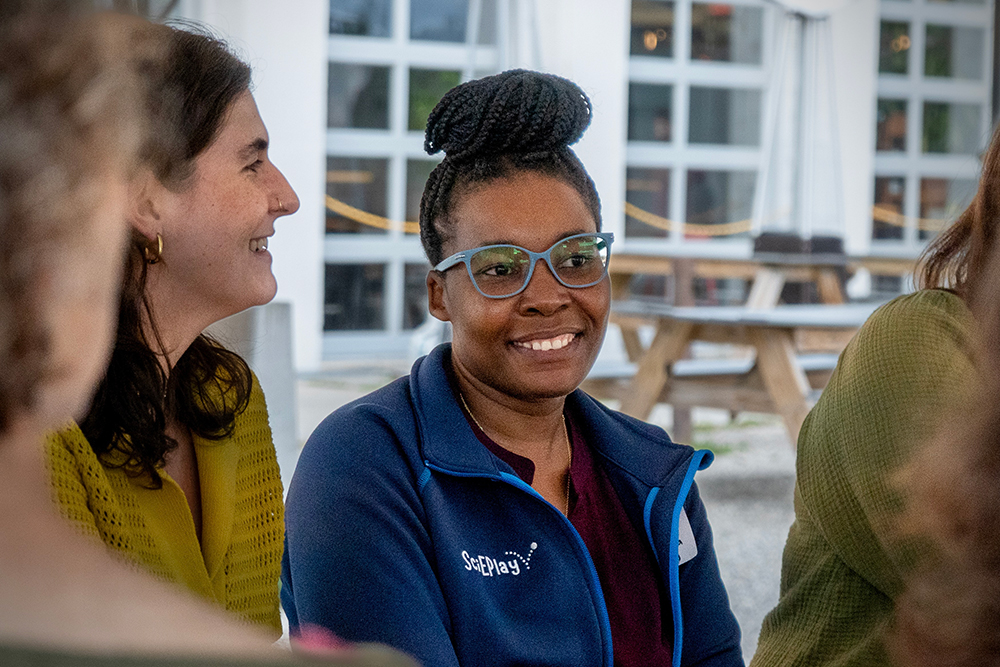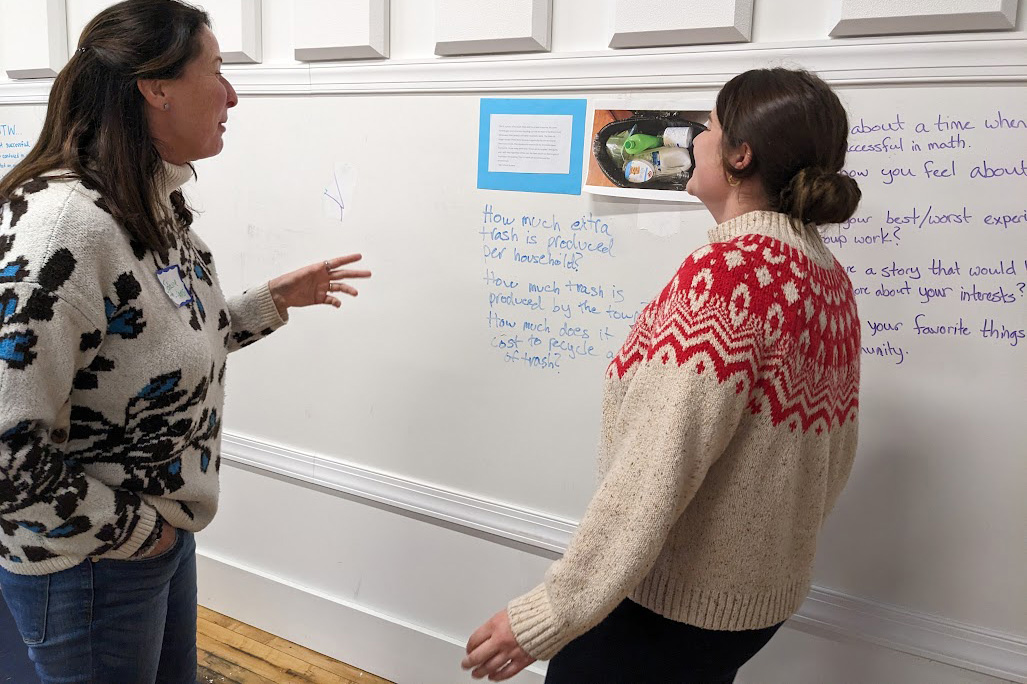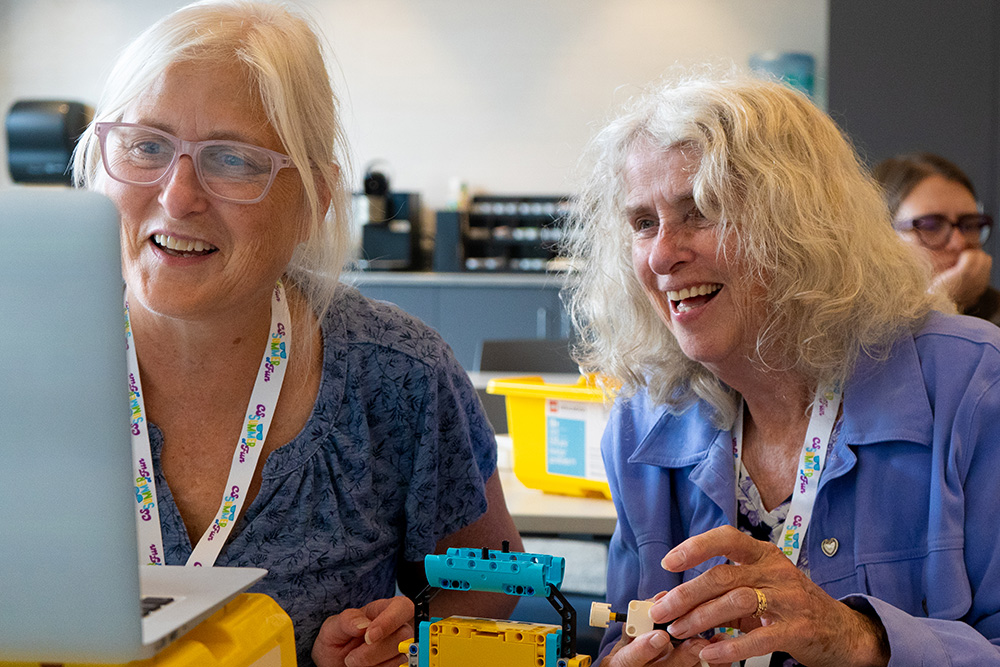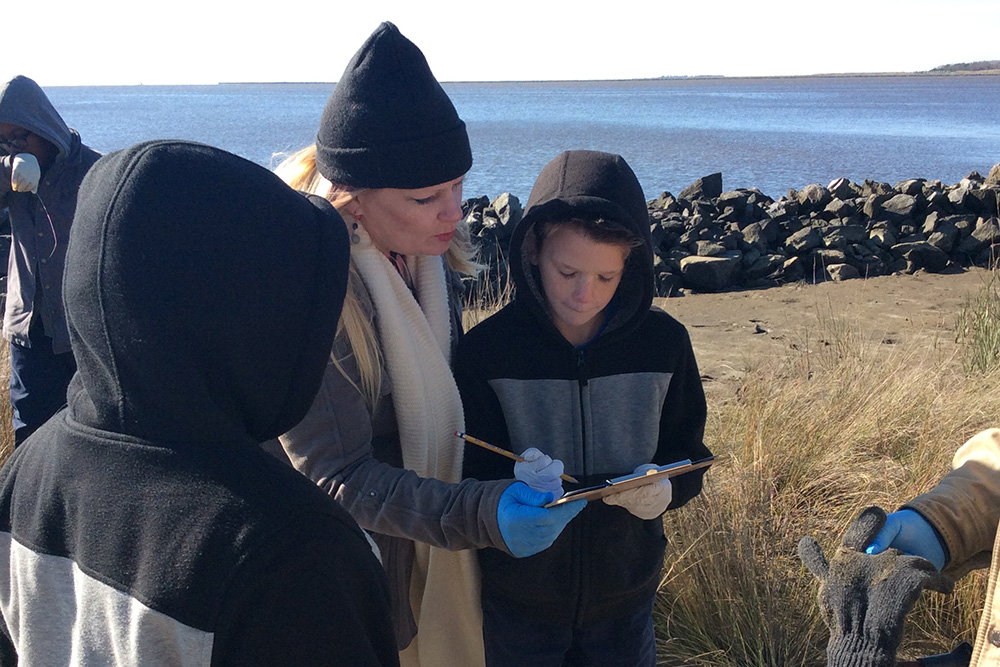SciEPlay, a collaborative research project investigating the intersection of science, engineering, and play in early childhood education, recently concluded its inaugural year with PreK and Kindergarten teachers. A cohort of 11 early childhood educators across Maine participated in research activities, professional learning, and coaching sessions during the 2023-2024 school year. Working alongside SciEPlay staff from MMSA, Bowdoin College, and Samara Early Learning, these dedicated educators enhanced their ability to support science and engineering practices through play-based learning.
When asked about their experiences, participating educators’ reflections coalesced around two distinct themes:
Observing Over Intervening
Educators found that by taking a more “hands-off” approach, students’ play would naturally gravitate toward inquiry and problem-solving. This led them to reconsider how they contributed to students’ learning experiences, in particular, letting kids arrive at conclusions and solutions with less intervention. Some takeaways and adjustments to teaching approaches from educators included:
- “I am going to be watching how students plan and carry out investigations and listen to the questions or statements made as they work through investigating phenomena.”
- “[I will be] stepping back at bit more during free build stations in the younger grades and just listening to the conversations”
- “Now I sit back and watch, let them [students] play, move materials, and not have as many boundaries.”
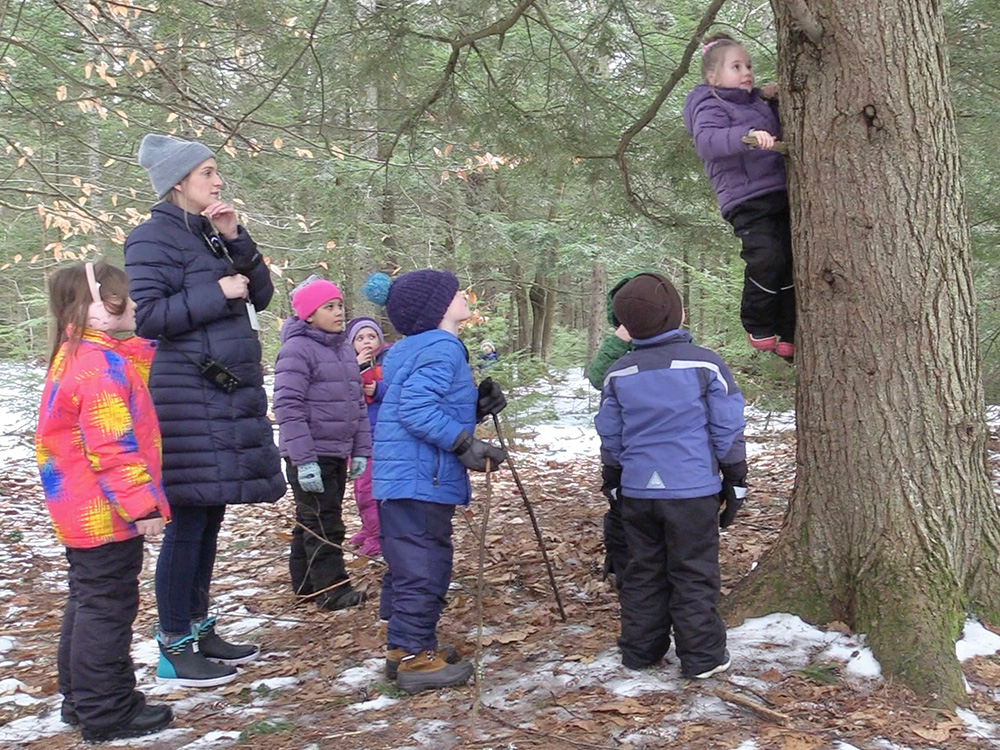
Expanding What “Counts” as Science
By taking a less directive role during play and allowing children to follow their own interests and ideas, educators began to see science in new and unexpected ways. They expanded their understanding of what constitutes science, recognizing that it can occur naturally within play-based experiences, not just designated science activities or stations. Educators began to reimagine science through play and subsequently enable students to learn in new ways.
- “The project has helped me notice science more [including] interactions that I didn’t think were science. Now I see science happening, [and] NOT just the prescribed experiments.”
- “Before this project, I was narrow minded about science because we are a curriculum school. Now I am open minded that science is happening everywhere. I have a science hat on in different areas.”
- “I think the idea of reframing what science is and who gets to engage with science is powerful.”
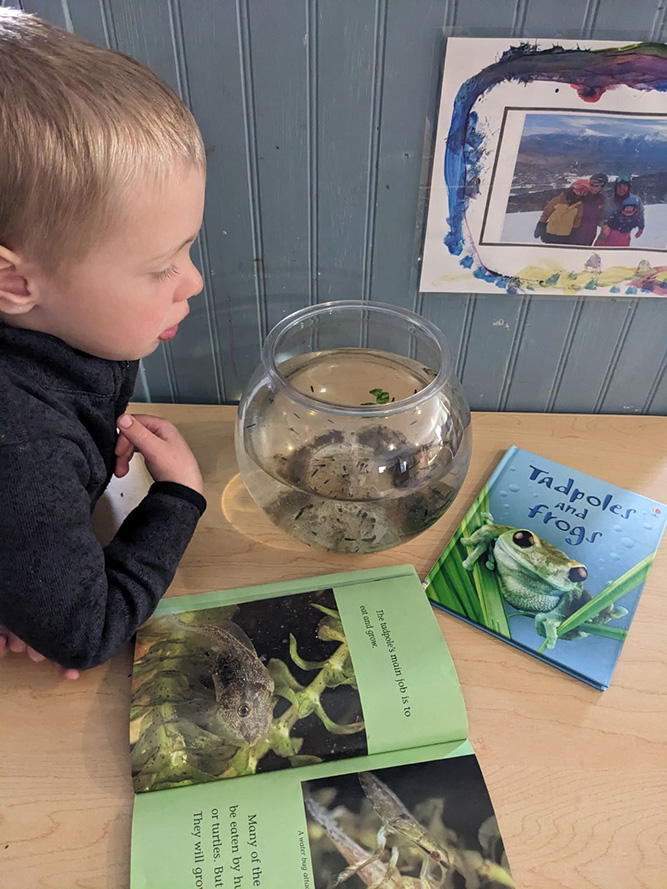
Driving Systemic Change
In addition to sharing personal observations from their classrooms, teachers also expressed a desire to influence broader systemic change to support play-based learning. They advocated for the adoption of play-based approaches across their school sites and found opportunities to inform and inspire their colleagues.
For example, one school with six SciEPlay participants contributed to a school-wide professional development day about play-based learning. They discussed the benefits of play, what it looks like in their classrooms, and a few tools to support play-based learning. At that same school site, several SciEPlay teachers joined a committee to change the school schedule, reducing the number of transitions, increasing time outdoors, and emphasizing longer blocks of time for uninterrupted play. Teachers also shared resources to overcome common obstacles to play-based learning, for example, a community grant to purchase rain gear for children, allowing them to play outdoors in all weather.
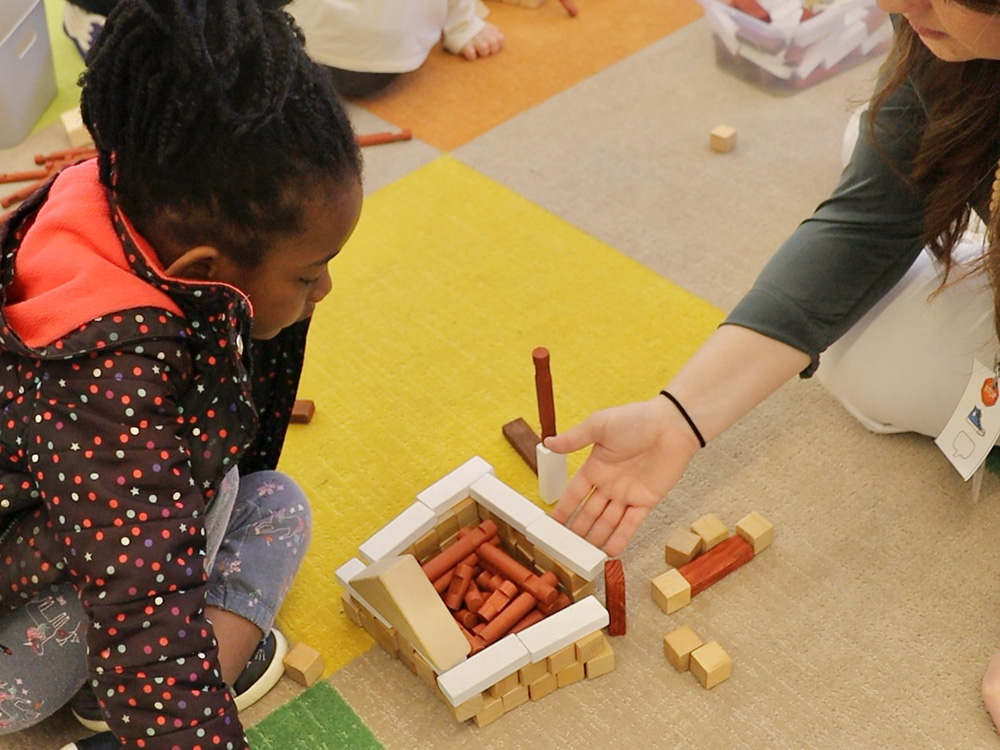
Learn More and Connect with Us
Even in its first year, SciEPlay has had a significant impact on early childhood STEM education. The seeds that were planted throughout the professional learning initiative are already bearing fruit in school communities, fostering a more play-based approach to science education. We are excited to launch our second year of SciEPlay professional learning in fall 2024.
Learn more about SciEPlay by watching our intro video or visiting the project webpage. Join our mailing list and follow MMSA on social media (#SciEPlay) to stay up-to-date on the latest news and developments (Facebook, Instagram, and X /Twitter).


